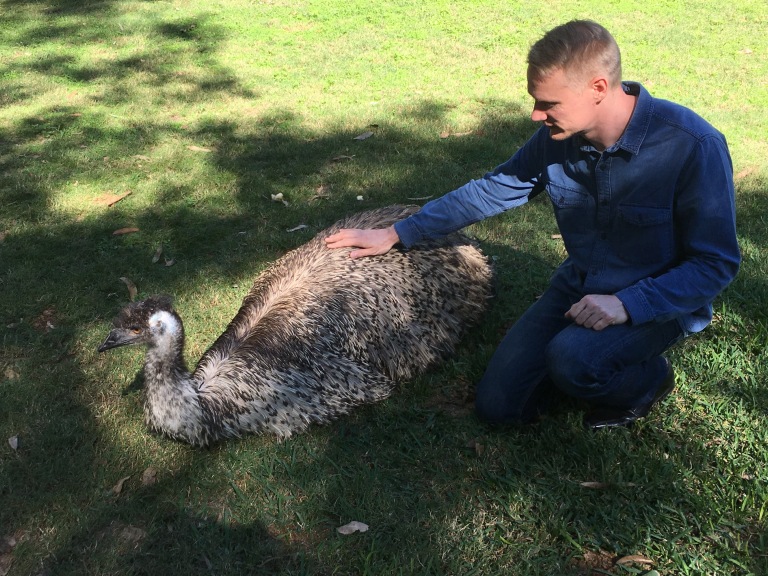
It has now been five weeks at the Library with four more to go, and the conversations have been extraordinary. Seeing people push beyond their discomfort and really take on the question – What do I want to say to people in 2117? – is inspiring. Thank you for your generosity and vulnerability.
These conversations have reiterated for me that the future is a choice. The histories that will be told of our time, while subject to future revisionists, are a choice. I say this because most conversations have quickly focused on the negative aspects of our time. Someone specifically apologised for our disposable nappies while another mentioned our pollution. Both are valid points as we live in the Anthropocene, and yet it is worth remembering that we have every say about how the future goes as far as our own impact on it is concerned. For the past 250 years we have steadily increased the carbon dioxide content of the Earth’s atmosphere and with that, the acidity of the oceans. We can choose to begin to decrease it, today, right now. For centuries, even millennia, we have reduced biodiversity on the planet by causing countless species extinctions while also reducing the overall biomass of most species other than us. We can choose to be guardians of all life, of biodiversity on the planet, be an embodiment of care, today, right now. We cannot effectively reverse extinction but we can choose to ensure that the people of 2117 get to see an Orange-bellied Parrot, a Saiga antelope and a Lord Howe Island stick insect, in life rather than on film. Unfortunately it is probably too late for the Vaquita porpoise in the Gulf of California, likely to be the second cetacean to become extinct since the Sydney Olympics, following the Baiji. Let that sink in. It is depressing. We ought to grieve every species we have lost, but the grief must not paralyse us from the work at hand, today, right now.
I repeat ‘today, right now’, because our tendency is to put difficult work off into the near future that then never happens. Look at climate action. I was an optimistic 17 when the Rio de Janeiro Earth Summit brought together world leaders to discuss our impact on climate, among several issues. I was a weary yet optimistic-by-ch0ice 40 by the time the next generation of world leaders signed the Paris Agreement on climate. I am now an angry-in-my-optimism 42 watching as a self-serving President attempts to derail 25 years of work by countless individuals. Enough already.
Our future is our choice. What will you choose? I’m at the UTS Library 9am-5pm (at lunch 12-1pm); please come tell me. If you’re not able, please send me a message.
Photo taken at the John Morony Correctional Complex.
